|
Throughout the month of October, the Church gathers in Rome for the Synod of Bishops on Young People, the Faith, and Vocational Discernment. For generations, young people have heard that they are the future of the Church, and now Pope Francis, bishops from all over the world, auditors from various fields including youth and young adult ministry, and even some young people gather within the Synod hall to discuss this future and the young people that will help move the Church forward. On October 6, 2018, the University of Notre Dame’s Center for Ethics and Culture hosted an event in Rome titled, “’Behold, I make all things new’: A Conversation on Youth, Faith, and Vocational Discernment.” The event kicked off with a reception where members of the media, members of the audience, and Synod participants spent time talking and getting to know one another. Seemingly always talking with someone new was John Allen Jr., the founder and editor of Crux, the Catholic news outlet that was co-sponsoring the event with UND. As the start time of 7:30 approached, Mr. Allen announced in a loud voice that the Synod session had run long and the Bishops would be there soon. After the audience had gotten settled in the hall, Bishop Barron, Auxiliary Bishop of Los Angeles, and Bishop Onah of Nigeria entered the hall to a round of applause. Dr. Pia de Solenni, the Chancellor of the Diocese of Orange, moderated the event and welcomed Bishop Onah to give some opening remarks. After Bishop Onah shared some words, the six participants gave short testimonies to the audience and bishops present about their lives as Catholics. These participants from across the world, including countries such as China and Bermuda, shared about their relationships with the Church and God, the influence their families and friends had had on them, and their hopes for the Synod. The audience was clearly moved by these young people, not only by their courage to get up and speak in front of this crowd, but by their love for the Catholic Church and God. After the testimonies had finished, Bishop Barron and John Allen began a conversation on the topic of the Synod that was moderated by Dr. de Solenni. Mr. Allen provided interesting and challenging questions to Bishop Barron, but both provided an insightful view into the Synod and the different paths that the discussion and prayer could take. After the conversation, Bishop Onah was again invited up to provide his thoughts and reflections on the six young people’s testimonies. Bishop Onah’s enthusiasm for young people and trust in the Holy Spirit’s guidance of the Synod was obvious, and the passion with which he spoke was infectious. The event ended with a few questions taken from the audience and answered by Bishops Barron and Onah. One of the topics of these questions included beauty in sacred spaces, including an explanation of the Faith while presenting it as true and beautiful. Bishop Onah’s answer was remarkable. He pointed to the universality of the Church, witnessed by all of the different nations and peoples present and active at the Synod, as a manifestation of the Church’s beauty. He left the entire room, Bishop Barron included, speechless. We prayed together, concluding the evening by joining our hearts to God and focusing on the beauty that he’s given us in the Church. I couldn’t think of a better way to end, and a better thing to reflect upon as the Synod continues.
0 Comments
“But this I will call to mind; therefore I will hope: The Lord’s acts of mercy are not exhausted, his compassion is not spent; They are renewed each morning—great is your faithfulness!”
-Lamentations 3:21-24 Reflecting on the theme for this year’s Mid-Atlantic Congress—"Hope”—I feel as though the idea of hope seems a radical one to even consider today. Every morning, we’re confronted with more bad news: refugees, war, political espionage, starvation, violent crime, and even mass shootings in our own communities. It’s enough to make you throw up your hands and cry out, “Just make it stop!” And that’s exactly why we need hope. With the current state of the world, focusing on the theme of hope is one of the most important things we can do as a community of faith. We often hear that things are in crisis: the family, the Church, our nation, our whole world. But what we encountered at MAC this year looked nothing like crisis. In fact, it looked very much like hope. In our conversations with participants, the Catholic Apostolate Center staff witnessed a fire that, in charity and love, seeks to transform the world with the good news of the Gospel. And while it’s easy to get caught up in the excitement of being surrounded by passionate and hard-working people, there are ways we can carry that hope and momentum forward into our parishes and communities. The Catholic Apostolate Center participated in four presentations this year at the Mid-Atlantic Congress. In our presentation discussing Living as Missionary Disciples, the U.S. Bishops’ guide for pastoral planning, we were able to provide basic principles of missionary discipleship and evangelization. We talked about where the Church in the United States is heading with its evangelization and pastoral planning efforts and together brainstormed practical ways to implement these ideas in our own parishes and dioceses. By collaborating with other members of the Church, and helping to form missionary disciples, our work can change the narrative of hopelessness we often see in the world. The Center also engaged in fruitful conversation about how to equip young adults to enter into the mission the Church calls us to: becoming missionary disciples, or everyday evangelizers. The session highlighted work being done in several archdiocesan and post-collegiate formation programs, such as Apostles on Mission. We also reflected on the importance of fostering a greater sense of vocational discernment among young adults—a theme on which the Church will continue to reflect in the upcoming Synod on Young People, the Faith, and Vocational Discernment. Regarding our schools, the Center had the opportunity to reflect on the complexities of the role of principals as Lay Ecclesial Ministers. Acting as part-administrator, teacher, janitor, crying shoulder, cheerleader, and lunch monitor, a principal is also a school’s connection to the local parish and diocese. They take on a complex role in today’s world and, from the discussion in our session, are eager to renew their commitment to helping form the next generation of missionary disciples. Finally, the Center unpacked the idea of collaboration from the beginning as it can apply to pastoral planning. With so many new (rather, renewed) ideas being proposed by Pope Francis and the bishops, wrapping one’s head around the various buzz words, new terminology, or different pastoral methodologies can seem overwhelming. Our conversation touched on co-responsibility, missionary discipleship, and entering into pastoral planning with a spirit of discernment and collaboration. It was encouraging to see pastoral leaders rising to the challenge of being co-responsible missionary disciples ready to share the hope of Jesus Christ. At MAC this year, we experienced hope: hope in the Lord, hope that will not disappoint, and hope that sends us forth. We saw the excitement and fire that comes from hope, which will be taken home to our parishes, schools, and dioceses to transform the world. We thank all who engaged in conversation with us at MAC and challenge you to proclaim the hope of the Gospel to the world. To listen to our presentations from this year’s Mid-Atlantic Congress, please click here. “…the Church wants again to state her desire to encounter, accompany, and care for every young person, without exception.” -Pope Francis What is the role of youth and young adults within our Church? How can the Church better listen to their desires, dreams, and needs, and empower them as contributing members of the Body of Christ? What are young people seeking and how can the Church better minister to them during this transformative time in their lives? These are a few of the types of questions asked and discussed at the National Dialogue on Catholic Pastoral Ministry with Youth and Young Adults in Chicago from September 17-19. With representatives from almost fifty Catholic organizations, apostolates, and diocese around the United States, the National Dialogue brought pastoral leaders working with youth and young adults together in order to discuss the future of pastoral ministry to the young church. This dialogue was called for by the United States bishops and co-hosted with the National Federation for Catholic Youth Ministry (NFCYM) and the National Catholic Network de Pastoral Juvenil Hispana (LaRed). The National Dialogue was organized to unify, engage, and mobilize church leaders working with youth and young adults in preparation for the XV Ordinary General Assembly of the Synod of Bishops on “Young People, the Faith, and Vocational Discernment” called for by Pope Francis in Rome in October of 2018, as well as the V Encuentro called for by organizations advocating for Hispanic Ministry. According to their website, “The vision of this initiative is an energized and unified Church committed to forming and engaging youth and young adults as missionary disciples.” The Catholic Apostolate Center was honored to be invited to participate in the National Dialogue this year. As a ministry of the Society of the Catholic Apostolate (Pallottines) - Immaculate Conception Province founded in 2011 to respond to the needs of the church, the Center has worked with and for active young adult Catholics in a variety of ways. Most notably, the Center has developed the ten-week formation program Apostles on Mission in collaboration with the Archdiocese of Washington to help young adults become active evangelizers. As our patron, St. Vincent Pallotti, believed, we are all called to be apostles—what Pope Francis calls missionary disciples. Through efforts such as Apostles on Mission, as well as our online Catholic resources, webinars, podcasts, social media presence and blog, the Catholic Apostolate Center works to revive faith, rekindle charity, and form apostles across all ages and experiences within our Catholic faith. As Pope Francis wrote in the Preparatory Document for the 2018 synod, “Proclaiming the joy of the Gospel is the mission entrusted by the Lord to His Church.” We are excited to see how the collaborative fruits of the National Dialogue help us to fulfill that mission and continue to work to spread the joy of the Gospel each day. I remember the first time I experienced Eucharistic Adoration. During my first week of college, I was walking back to my residence hall after grabbing dinner with some friends of mine. As we walked back into our dorm, one smiling upperclassmen was talking to some other freshman in the lobby. He saw us and made a beeline. I was only five steps away from the elevator, maybe he wouldn’t catch me. Alas, the elevator did not come in time and we ended up chatting with this friendly upperclassman. As he introduced himself, he also invited us to praise and worship Adoration that night. He promised us there would be a ton of good food afterwards. Though there were posters about this event throughout the dorm and we knew about it, we did not previously plan on attending. However, after being personally invited, being called by our names, we decided to give it a try. It was one friendly person’s invitation (and yes, the promise of food) which forever changed my faith-life. After going to Adoration and the fellowship held immediately afterwards with friends, I was hooked. College students and young adults are in a unique place in their faith journey. Many are seeking answers to some pretty big life questions. As the Church, we have the joy of being called to reach out to these sometimes marginalized members of our community and invite them to experience the love of Christ. Yet, how do we do that? As a college student myself and someone who ministers to undergraduate students, I have found that there is one way in which your parish can successfully engage Catholic young adults and college students. All college students and young adults seek a place to belong. And what better place is there than the Church of Jesus Christ? The parish community can seek to provide different opportunities for college students and young adults attending the parish to get together for fellowship. Having faithful Catholic friends your age who provide you with support on your spiritual journey is indispensable. The Christian life is not individualistic in nature, but one marked by interdependence. Being a parish which hosts events that foster communion between young adults is a key way to keep young adults engaged in parish life. Some parishes successfully do this by hosting mini-Theology on Tap series at a local restaurant, or something as simple as hosting praise and worship Adoration followed by a meal. These are just two examples of how you can help young adults feel like they belong in your parish community and experience Christian fellowship with their peers. One principle tip is to host events which have a liturgical aspect (pray compline together or have a holy hour) and a fellowship aspect (do not underestimate the power of food!). Yet, you might be thinking, there are no college students or young adults currently active in my parish! Pope Francis might have some wisdom to share with us. During Pope Francis’ journey to Brazil for World Youth Day in 2013, he told an assembly of bishops that "we cannot keep ourselves shut up in parishes, in our communities, when so many people are waiting for the Gospel.” Each baptized member of the parish community has a responsibility to be hospitable and welcoming. Each member of the parish community must be marked by their missionary zeal. Evangelization is not simply the job of the parish staff, but the calling and the joy of each Christian. Hence, it is your calling, not somebody else’s, to reach out to inactive college students or young adults and invite them back to the parish so that they can experience the love of Jesus Christ. This involves each person in the parish calling students by name. It was that simple invitation which brought me into regularly participating in the life of the Church. This responsibility, this call of each Christian to invite students and young adults by name, also becomes one of the greatest joys. *This post was originally published on our blog on April 14, 2016. My sacrifice, O God, is a contrite spirit; a contrite, humbled heart, O God, you will not scorn.” – Psalm 51: 19 During my graduate program at The Catholic University of America, I had a chance to take a class on the Psalms. Not only did I learn a lot of information about the psalms, but also my perspective on prayer changed. The professor taught us about the humanity of the psalms: each one is riddled with human emotion and experience. The psalms show us that our prayers to God do not have to be perfect. Rather, our prayers should be honest because we are placing our trust in Him. This Lent, I decided to pray more with the psalms. Over the past few weeks, I’ve done this by praying the Liturgy of the Hours and doing Lectio Divina. Praying with and contemplating the psalms this Lent has really helped deepen my relationship with God. It has also helped me in my role as a Youth Minister. So far, God has reminded me of two principles that we should remember while reading the psalms: 1) the psalms are a mirror to your soul and 2) You should allow the psalms to be a guide to your life. One psalm that the Church uses throughout the season of Lent is Psalm 51. Psalm 51 is titled “The Miserere: Prayer of Repentance” and the first two verses tell us that this prayer is the prayer David prayed after the prophet Nathan had told him he had sinned (cf 2 Kings 11-12). By praying this psalm throughout the season of Lent, we are reminded how much we are in need of God’s mercy. No matter what we’ve done or what we will do, God always calls us back to himself. He constantly invites us to repent for our sins and be reconciled with him. God’s mercy awaits us in the Sacrament of Reconciliation. We are all sinners. By using Psalm 51 as a mirror to our own souls, we know that we are in need of repentance. Through the Sacrament of Reconciliation, the Lord can wash us so that we can become “whiter than snow” (Psalm 51:9) Psalm 51 is also a great prayer to guide a Christian’s life. We are imperfect beings living in a broken world, and we encounter sin every day. It is only through God’s abundant compassion that he blots out our sins. Verse 12 says: “A clean heart create for me, God; renew within me a steadfast spirit.” As Christians, we are called to repentance and conversion. God always calls us to allow him to change our hearts to bring us closer to his own heart. By continually offering our own hearts to him, God will do great things throughout our lives. Lent is a time of repentance and turning our hearts back to God to prepare for Easter. Through praying with Psalm 51, we can be reminded of our own brokenness. We can also be reminded to offer our heart to God in every prayer and action that we do in order to allow him to create in us a clean heart. Question for Reflection: How can you pray with the psalms this Lent? Choose one psalm this week to reflect on. Growing up, I experienced the excitement of living in a predominantly male household. My brothers and I would regularly tap into some wellspring of energy within ourselves and cause all sorts of trouble for my poor mother to sort out if we somehow didn’t already exhaust ourselves. Now that we’re older and (hopefully) more mature, I find myself wondering 1) where did that incredible energy go? and 2) how did my mother ever put up with us? It certainly takes a special type of person to remain steadfastly patient and loving in the face of such chaos; mothers are a wonderful example, but what about those who are not parents (and would not be obligated to do so) who look after the young? St. John Bosco, whose feast we celebrate today, is similarly venerated for dedicating his life to the betterment and education of street urchins, juvenile delinquents, and other disadvantaged youth. Born in Italy, “Don Bosco” was first the chaplain of a girls’ boarding school in Turin called the Rifugio (“Refuge”). His other ministries included visiting prisoners, teaching catechesis, and assisting at the country parishes. While visiting the prisons, Don Bosco was troubled to see so many adolescent boys and became determined to prevent them from ending up there. Finding traditional methods of parish ministry inefficient due to the urbanization-driven influx of migrants, Don Bosco developed another form of apostolate: meeting the boys wherever they were in life—be it offices, shops, or marketplaces. While society might have looked the other way or written off these little ones, Don Bosco would unceasingly offer help to those he encountered throughout his ministry. I could focus on the well-documented efforts of the saint’s ministry, such as the establishment of permanent youth centers (which he called oratorio), contracting dignified jobs for the unemployed and obtaining fair conditions for those who held jobs, caring for the boys’ health, or instructing those willing to study after the work day, but I’d like to dwell on the special aspect of his numerous dreams which helped to reveal God’s will for his life. In one particularly, the Blessed Mother led Don Bosco into a beautiful garden, bidding him to pass through a rose arbor after removing his shoes. Shortly after doing so, his feet were cut and bleeding from the thorns of the roses on the path he was taking, yet he refused to turn around. Observers in the dream remarked, “How lucky Don John is! His path is forever strewn with roses! He hasn’t a worry in the world. No troubles at all!” They attempted to follow, but many who had been expecting an easy journey turned back—only some stayed with him. Finally, after successfully enduring the journey, he found another incredible garden where a cool breeze soothed his torn skin and healed his wounds. I agree with Don Bosco’s interpretation: the path was his mission, the roses were his charity to the boys, and the thorns were the distractions and frustrations that obstructed his efforts. The message of the dream was clear to the saint: keep going, do not lose faith in God or His calling! For Don Bosco, challenges would always remain, such as financing. Don Bosco kept going and did not lose faith in God. His mother, a 59-year old poor peasant, even left her house and sold her jewelry to become a mother (“Mamma Margherita”) to those her son took in, eventually numbering 800! Acts of faith such as these reflect the fact that human works are very limited; it is God who is able to do the impossible. One can see this also evident in the efforts of St. Mother Teresa in the streets of Calcutta, the witness of the shepherd children who saw our Lady at Fatima, or the strength and determination of Mother Angelica in the founding of the Eternal Word Television Network. In surrendering ourselves to be like “a little pencil in the hand of a writing God,” as Mother Teresa referenced in an interview, and not worrying about human measures of success, we can follow the example of saints like Don Bosco who effected great change in both society and the individual lives of those they served. The saints never worked for their own sake, but simply did the work they were guided to do by Providence. To echo the words of Don Bosco, “I have done nothing by myself. It is the Virgin Mary who has done everything.”  Who was it that claimed the Church is irrelevant to young people? Who was it that claimed young people did not seek or yearn for Christ? My experience of World Youth Day (WYD) has shown me otherwise. WYD is the largest gathering of Catholic young adults in a series of events sponsored by the Church. First initiated by St. John Paul II in 1985, WYD is celebrated at the diocesan level annually and at the international level every two to three years at different locations around the world. People do not attend as tourists, but rather as pilgrims, since the nature of the composite events are religious in character. Typically, pilgrims will arrange lodging in the host city before participating in the opening ceremonies, catechesis, and cultural exhibitions. Taking advantage of all the host city has to offer, pilgrims will usually also spend time exploring the region (especially churches), shopping for religious souvenirs, and tasting the local cuisine… and very rarely alone! As the locals are quick to notice, the host city will be absolutely inundated with pilgrim groups, each identified by various flags, shirts, and chants. In spite of the inconveniences experienced (such as crowds, traffic, and long lines), for the most part, the locals are excited to greet so many peoples; local businesses are especially happy to cater to the pilgrims’ needs. The focus of WYD events centers around the arrival of the pope: everyone wants to hear what the Holy Father has to say to the young pilgrims at various sites and events. Traditionally, the Holy Father will address crowds from his residence, during Masses, Stations of the Cross, and the overnight vigil during which millions camp out together in prayer. The conclusion of the Vigil Mass the following day signals the end of the official WYD program, though at that time the next host city is formally announced. I’ve been blessed to have been able to attend two World Youth Days, in Rio de Janeiro, Brazil in 2013 and in Kraków, Poland this year. So much more than a sightseeing trip, WYD for me has been all about seeing how God’s love for us manifests itself in each culture. Encountering millions of young believers (in addition to curious observers) who are inherently joyful in their witnesses to the Lord, I am especially delighted to see them interact with each other through songs, chants, prayers, and games during scheduled events or out in the streets. For me, some of the most powerful witnesses given happened outside of the official program (though seeing millions kneel before the Blessed Sacrament with lit candles during the vigil was indescribably moving). I remember seeing a group of Italian pilgrims run over to help a local disabled man carry groceries up a number of street stairs; another group immediately rushed to comfort a female pilgrim who had broken down during our 12 kilometer (about 7.5 miles) hike from the site of the overnight vigil. Simple acts of love like that really touched me as being authentically Christian: to love in even the smallest matters and, by doing so, answering the call given at the end of Mass, “Go in peace to love and serve the Lord.” Pope Francis gave many beautiful and encouraging addresses to those assembled in Poland, but I was most impacted by an action of his. At the beginning of Mass at the great Shrine of Czestochowa, Pope Francis missed a stair step and fell, thankfully uninjured. He later explained that, "I was watching (an image of) the Madonna, and I forgot the step." He literally fell for Our Lady. When I heard the news, I remembered a similar experience of my tripping on the stairs upon seeing a lovely peer of mine go by. To have that ineffably tender and peaceful focus on the Blessed Mother, to be in awe of the Virgin, reflects the perfect love God has for her and for each of us. WYD may have ended, but the mission entrusted to the young pilgrims by Pope Francis still burns in our hearts: Launch us on the adventure of mercy! Launch us on the adventure of building bridges and tearing down walls, barriers and barbed wire. Launch us on the adventure of helping the poor, those who feel lonely and abandoned, or no longer find meaning in their lives. Send us, like Mary of Bethany, to listen attentively to those we do not understand, those of other cultures and peoples, even those we are afraid of because we consider them a threat. Make us attentive to our elders, as Mary of Nazareth was to Elizabeth, in order to learn from their wisdom. May each of us always endeavor to accomplish it! To learn more about World Youth Day, please click here. For more World Youth Day reflections, please click here. "Rather than seeing summer as the “down time” at a church, commit to approach the coming months with the intention of fostering experiences of active service, quiet prayer and contemplation, and stimulating intellectual work or professional training." Having worked at a handful of churches, I have observed that the summer is the slowest time of year for parish life. Parishioner’s schedules are all over the place, especially if there are children or teenagers involved, with vacations, camps, etc. During the summer, parish programs tend to slow down (However, some parishes will run a Vacation Bible School, or similar camp-like program). But summer doesn’t have to be a long spiritual nap. In fact, the summer can be a very important time and opportunity for a church, especially for church staff. How you approach the summer can greatly shape the year ahead. Besides the celebration of the Mass, the summer provides a number of unique opportunities for spiritual growth in areas that aren’t always possible throughout the rest of the year. Here are a few opportunities for spiritual growth you might consider for your parish. Parish Mission Trips Many parishes host mission trips—whether local, national, or international. Consider prioritizing mission trips and extending the opportunities to different ages and areas. Some of my best summer memories are the trips I went on to rural Appalachia in high school. These trips instilled in me a call and love for ongoing service in my faith. Plan opportunities not only for parish staff, but also for families to serve together. Make it memorable and accessible. Let missions be an opportunity to get beyond the model of Christian ministry as something that only happens at your church. And remember to report back on the trip through photos, stories, or results to your parish. People love hearing about the activity in their parish community. It creates a sense of energy and momentum that can get carried into fall activities, especially in a youth ministry context. A service trip provides something concrete participants can point to and share with friends, family, or parishioners. I’ve also found that the more “on the fence” parishioners that are hesitant to get involved often take that first step after seeing the fruit of service. Most importantly, participants inevitably leave with a transformed, deeper experience of their faith and a lived experience of Jesus in his ministry to the broken places in need of healing. To find some long-term and short-term mission and service opportunities, click here. Retreats Work at the church never stops, but it does slow down. When is the last time your staff or ministry team spent time away, even just for a day or afternoon, from the office environment together and prayed? There are gorgeous retreat centers and shrines in every state that too often only get visited in the dead of winter. The Christian writer and philosopher Dallas Willard once said, “The greatest threat to devotion to Christ is service for Christ.” He was talking about our tendency to view prayer and contemplation as less fruitful compared to active ministry. Prayer is essential not only to any parish ministry, but to the Christian life overall. Invite your team to pray regularly or be renewed by attending a retreat. Priests are also required by Canon Law to take a retreat. Make sure your parish priest is getting the time off he needs to pray and reflect. If you or your staff is on retreat, pray for your parish priest throughout that time. Staff Development With all the conferences, classes, symposiums, etc., that happen on college campuses or churches throughout the country, summer is a great time to invest in the development of staff and volunteers. Look for opportunities to enhance your team’s intellectual and professional skills. Be flexible and open to new ideas where you and your staff can connect with other professionals or get inspired. If your parish has room in the budget, propose a conference you are passionate about or that will help your work. If you’re a liturgy or music director, take your ministers or musicians out to see a concert of sacred music or take a tour of a cathedral or museum. Rather than seeing summer as the “down time” at a church, commit to approach the coming months with the intention of fostering experiences of active service, quiet prayer and contemplation, and stimulating intellectual work or professional training. You might notice that rather than mustering the energy to get “back in gear” as summer draws to an end, you will feel renewed, enriched, and equipped for the “busy time” ahead. Moreover, you may draw closer to other others working at the parish and be more integrated as a staff, youth group, or ministry team. This can be a leaven to your ministry and parish for the rest of the year. Finally, make sure you have some fun while you’re at it; it is summer after all. I remember the first time I experienced Eucharistic Adoration. During my first week of college, I was walking back to my residence hall after grabbing dinner with some friends of mine. As we walked back into our dorm, one smiling upperclassmen was talking to some other freshman in the lobby. He saw us and made a beeline. I was only five steps away from the elevator, maybe he wouldn’t catch me. Alas, the elevator did not come in time and we ended up chatting with this friendly upperclassman. As he introduced himself, he also invited us to praise and worship Adoration that night. He promised us there would be a ton of good food afterwards. Though there were posters about this event throughout the dorm and we knew about it, we did not previously plan on attending. However, after being personally invited, being called by our names, we decided to give it a try. It was one friendly person’s invitation (and yes, the promise of food) which forever changed my faith-life. After going to Adoration and the fellowship held immediately afterwards with friends, I was hooked. College students and young adults are in a unique place in their faith journey. Many are seeking answers to some pretty big life questions. As the Church, we have the joy of being called to reach out to these sometimes marginalized members of our community and invite them to experience the love of Christ. Yet, how do we do that? As a college student myself and someone who ministers to undergraduate students, I have found that there is one way in which your parish can successfully engage Catholic young adults and college students. All college students and young adults seek a place to belong. And what better place is there than the Church of Jesus Christ? The parish community can seek to provide different opportunities for college students and young adults attending the parish to get together for fellowship. Having faithful Catholic friends your age who provide you with support on your spiritual journey is indispensable. The Christian life is not individualistic in nature, but one marked by interdependence. Being a parish which hosts events that foster communion between young adults is a key way to keep young adults engaged in parish life. Some parishes successfully do this by hosting mini-Theology on Tap series at a local restaurant, or something as simple as hosting praise and worship Adoration followed by a meal. These are just two examples of how you can help young adults feel like they belong in your parish community and experience Christian fellowship with their peers. One principle tip is to host events which have a liturgical aspect (pray compline together or have a holy hour) and a fellowship aspect (do not underestimate the power of food!). Yet, you might be thinking, there are no college students or young adults currently active in my parish! Pope Francis might have some wisdom to share with us. During Pope Francis’ journey to Brazil for World Youth Day in 2013, he told an assembly of bishops that "we cannot keep ourselves shut up in parishes, in our communities, when so many people are waiting for the Gospel.” Each baptized member of the parish community has a responsibility to be hospitable and welcoming. Each member of the parish community must be marked by their missionary zeal. Evangelization is not simply the job of the parish staff, but the calling and the joy of each Christian. Hence, it is your calling, not somebody else’s, to reach out to inactive college students or young adults and invite them back to the parish so that they can experience the love of Jesus Christ. This involves each person in the parish calling students by name. It was that simple invitation which brought me into regularly participating in the life of the Church. This responsibility, this call of each Christian to invite students and young adults by name, also becomes one of the greatest joys. After the extraordinary visit of Pope Francis to the United States, I have a renewed vision of the world around me. I see things in ways that I had not experienced before. The Lord’s call for compassion and mercy, especially on the eve of the Jubilee of Mercy, is heightened. I hear that call so much more clearly now. My experience in youth and young adult ministry trained me to hear God’s voice speaking through popular culture so that I could help connect the Catholic faith to teenagers and young adults. As such, movies and television have become an important part of my ministry, as well as a guilty pleasure, especially when I need to process, reflect, and rest. This week, I took time to catch up on the new season of Doctor Who, the long-running BBC show about an alien time traveler named The Doctor, who often saves the day using his clever wit and a sonic screwdriver (a futuristic Swiss Army knife). In this week’s episode (to which I will offer a few spoilers, so be warned), the Doctor comes across an innocent young boy caught in the middle of a desert wasteland and surrounded by “hand mines”. The boy calls for help and the Doctor shows up to offer his assistance. As the Doctor starts to rescue the child, he asks the boy his name, to which he responds, “Davros.” What make this devastating is that “Davros” is the name of the Doctor’s longtime arch-nemesis who would grow up to create the race of killer robotic aliens known as the Daleks. The Doctor is faced with a dilemma: Does he save the child and, in so doing, allow the child to grow up to become a villain that would destroy so many, or does he abandon the child, which might possibly save countless lives? At first, the Doctor leaves – choosing the latter option. Years later, the Doctor finds himself in the presence of the adult Davros who has exterminated entire races throughout his adult life. Davros is bitter and broken. He is dying and asks the Doctor for one final moment, presumably to exact revenge for leaving him to die as a young boy. Davros asks why he willingly came, to which the Doctor responds, “I came because you’re sick and you asked.” Davros replies with bitterness, “Compassion? Always!” the Doctor answers. “I’m helping a little boy I abandoned many years ago.” To this, Davros laughs and mocks him, saying, “Your compassion is your downfall”and proceeds to trap the Doctor. Without going into too many intricate details of the plot, let’s just say that the Doctor’s companions rush to save him. Upon encountering one of Davros’ creations (the Daleks), the Doctor discovers that –despite the rage and revenge of this alien race, they also understand the concept of mercy. As the Doctor ponders this concept of mercy and wonders how this “design flaw”came to be in a heartless race of robotic aliens, he has an idea. He goes back in time to the young Davros whom he had once abandoned. Only a moment after he had initially left, as the boy stands crying for help, the Doctor reappears on the scene and offers mercy to his future enemy. The young boy asks “Are you the enemy?” The Doctor answers him, “Friends, enemies, I’m not sure if any of that matters as long as there is mercy. Always mercy.” It seems, in the end, the “design flaw”of the Daleks resulted from young Davros experiencing mercy from the Doctor (and if this all sounds confusing, it’s because it’s a time travel television show). Pope Francis spoke at great length about compassion and mercy during his visit, too. It was an undercurrent of each of his talks or homilies. He stressed the need to be compassionate with family members, to show mercy to those in prison and to the homeless, to those who disagree with us and stand on the other side of issues and causes. As we continue to process Pope Francis’visit to Cuba and the United States, and as we move into the Jubilee of Mercy, this quote from Doctor Who will continue to resonate with me: “Friends, enemies, I’m not sure if any of that matters as long as there is mercy. Always mercy.”It is a truth that didn’t originate from a science fiction show or even the Holy Father. It is a truth grounded in Christ, who told his disciples on the mountain: “Blessed are the merciful, for they shall obtain mercy”(Mt 5:7) May we, too, be merciful –even to those we may not like or agree with –for God is so gracious in his mercy towards us. In my community, I am a member of a young Catholic adult group where there are weekly women and men small groups. During one women’s small group we discussed discernment for everyday actions and decisions. One of the members mentioned Saint Ignatius’ book, The Discernment of Spirits, as interpreted by Timothy M. Gallagher, O.M.V. and how the book helps her differentiate between God’s plan for her and her own wishes and temptations in everyday life. I hadn’t heard of this book before and decided to read the “Ignatian Guide for Everyday Living.”
While recuperating from a leg wound from the battle against the French in Pamplona, Ignatius asked for reading materials, of which he was given religious texts. Gallagher states, “While Ignatius ceases reflecting on the worldly project he finds himself ‘dry and discontented.’ Yet after he has considered the project of imitating the saints, the delight remains. He continues enduringly to be “content and happy.” Ignatius begins to become aware of the differences between bad spirits and the spirit of God. Ignatius then follows the process of becoming aware, understanding and taking action in order to discern what he must do. Becoming aware means taking notice of what is happening in our inner spiritual thoughts. Gallagher is completely right when he says that, “the goods of the senses are more visible, more tangible, and more readily apparent to us than those of the mind and of the spiritual order… it is no easy task to untangle and identify the innumerable threads in the tapestry of our daily affective and reflective life.” Henry David Thoreau described how fast-paced we live our lives when he said in Walden, “It lives too fast.” The discernment of spirits requires us to focus on spiritual awareness, and not psychological or moral awareness. As our world becomes increasingly filled with technology and having the need to fill every moment with activity, we can easily lose quiet and reflection time required of us to discern what God is calling us to do. Understanding is the reflection we take on the stirrings we have now noticed that allows us to see what is of God and what is not. In Ignatius’ experience, he notices the differences between the thoughts that leave him happy and those that leave him dry. He reflects upon these and eventually comes to recognize why a thought is of God and the other not. As for our own lives, Gallagher says to ponder if these thoughts affect our lives of faith, hope and love and if they allow us to follow God’s will. If so, than these are of God. Taking action refers to accepting to live according to what we’ve noticed is of God and rejecting what is not of God. As if the first two steps of becoming aware and understanding God’s call to us aren’t difficult enough, rejecting or accepting a spiritual action requires us to make a decision in following God’s call. In Ignatius’ case, he accepts God’s project: he travels to Manresa to begin a life in imitation of the saints, and makes a pilgrimage to Jerusalem. There are a total of 14 rules Saint Ignatius describes in his text. Ignatius indicates that these rules are for the person who strives to overcome sin and who is simultaneously growing in the service of the Lord – a dedicated and progressing Christian. As I continue on the journey of reading and reflecting on the discernment of spirits, I will happily share what I’m learning. Next up – a deeper dive into understanding the 14 rules! Dana Edwards is a recent graduate of the University of Florida. She currently resides in Tallahassee, Florida where she works as a Digital Strategist, and volunteers as a lector and with communication outreach at her local parish, Good Shepherd Catholic Church. Recently, I joined a Catholic group for young adults in my parish. Once a month we have a group dinner and host a guest speaker to talk informally about certain topics in our Catholic faith. One of the speakers discussed the importance of community prayer, a topic that stuck with me so much so that I wanted to share the message.
First, prayer is essential for our spiritual growth and personal well-being. God does not intend for us to bear our crosses alone. In Matthew 11:28-30 Jesus said, “Come to me, all you who labor and are burdened, and I will give you rest. Take my yoke upon you and learn from me, for I am meek and humble of heart; and you will find rest for yourselves. For my yoke is easy, and my burden light.” Being a part of a faith community serves as a support system for us. We rarely like to be alone. Don’t we all crave sharing meals with friends and family? In fact, Jesus shares the source and summit of our faith with us over a community meal. Community strengthens and unites us in our faith. Our community even prays for our intentions at Mass. Therefore, community prayer is another way for us to become closer to God through others. The communion of saints and angels are also a part of our community. Saints and angels can pray on our behalf, with us and for us. The Catechism of the Catholic Church states, “[the saints’]intercession is their most exalted service to God’s plan. We can and should ask them to intercede for us and for the whole world.” We are never alone in our prayers. Instead of trying to figure out how to pray for the intercession from every saint, our speaker suggested picking a few we feel really close to and sense a calling toward to ask for prayers on our behalf. Family prayer is the first place of our prayer education, also mentioned in the Catechism. Prayers over meals, memorizing prayers of the rosary, praying for a good grade on a test, and the list goes on. Our introduction to faith and prayer begins in the community of our home. This is why it is so important to make family prayer a priority. St. Augustine says, “For he who sings praise, does not only praise, but also praises joyfully; he who sings praise, not only sings, but also loves Him who he is singing about/to/for. There is a praise-filled public proclamation in the praise of someone who is confessing/acknowledging (God), in the song of the lover (there is) love.” The Mass, the Liturgy, is the ultimate community prayer. This is one reason why attending Mass is vital to our faith. Liturgical prayer is a public prayer following prescribed ritual intended to unite individuals with God through Christ. We are renewed each week in community prayer by attending and participating in the Mass. As always, it is necessary to have individual structured prayer time every day. This is something I struggle with and have to continually be reminded of myself. To remember the time to share with God, setting a routine of prayer and remaining disciplined in that routine can help. One of the sisters who taught at the Catholic high school I attended said for us to hide our shoes under our beds so in the morning we kneel to get them and remember to pray! Take some time today to remember to pray, and to look at the different prayer communities in your life! Dana Edwards is a recent graduate of the University of Florida. She currently resides in Tallahassee, Florida where she volunteers as a lector and with communication outreach at her local parish, Good Shepherd Catholic Church. 9/25/2014 Discernment Story: How one volunteer came to hear her life calling through serviceRead NowI believe that my two years of service had a 100% direct impact on my discernment process and decision to enter the Daughters of Mary Help of Christians, more commonly known as the Salesian Sisters of St. John Bosco or just the Salesian Sisters. In fact, I would go so far as to say that God sent me to volunteer at this particular High School to reveal my vocation.
I wanted to do a year of volunteer service right out of high school, but did not have the opportunity to do so. I learned that I found great joy in serving others through my social outreach group in high school and had a strong desire to give more time, energy, and direct focus to volunteering. Come April of my senior year in college, I found myself without a plan for the following year and the idea of doing a year of service re-entered my mind. I visited theCatholic Volunteer Network website and found the online RESPONSE directory,which helped me to narrow down my search to the type of program I was interested in with the type of support that I needed. This is where I learned about the Cristo Rey Network of schools and truly the next chapter of my life began. The Cristo Rey Network is a high school model that offers low income families the opportunity to send their students to Catholic college prep high schools. How is this possible when most Catholic high schools are quite expensive, you might ask. The school partners with local corporate businesses, organizations, universities, hospitals, law firms etc where the students will work five days out of the month to offset their tuition cost. (Click here to learn more and see me in my classroom at minute 4:37.) It took a leap of faith to go to Don Bosco Cristo Rey High School (DBCR) in Washington, D.C. because I would be joining the Salesian Domestic Volunteers (now called Salesian Home Missioners) in their first year as a volunteer program and I would also be the only volunteer placed at DBCR. I was going to be a pioneer both in my volunteer program and placement in the school. DBCR was also only in its fourth year of existence and still responding to the challenges of being in the “start up” period. It would be two years of learning and growing for all of us. During my first year of service at Don Bosco Cristo Rey High School I worked in the Youth Ministry and Faith Formation Department while also teaching two sections of junior theology. In my second year I taught a full course load, five sections, split between freshmen and junior theology as well as assisting the youth ministry team. Within those classrooms and the small youth ministry office God called me to be a Salesian Sister. I learned a lot from working side by side with Fr. Abraham Feliciano, SDB (Salesians of Don Bosco). In him, I witnessed the everyday charism of the Salesians and joyful service to the young who are most in need. Fr. Abe loved those students with his whole heart and they knew it. They knew that they could rely on him to crack a joke and brighten their day or that they could come to him with serious problems and he would lead them to Jesus. I learned that the heart of the Salesian charism is a daily encounter with Christ in and through our students and hopefully reciprocated as we open ourselves to be an image of Christ for them. I spent countless afternoons in that youth ministry office, surrounded by young people, laughing so hard I thought I would burst! I also learned how to be with them in and through the struggles they encountered in their daily lives. (Click here to see the class of 2014 reading excepts from MLK Jr.’s “Letter from Birmingham Jail”. These are some of the many students who have overcome great challenges in their live and that I had the privilege to see Christ in everyday. ) While working with these students, I lived in community with volunteers from several different programs. We were a mixed bag of Franciscans, Salesians (that’s me!), Columbans, and volunteers from the Catholic Volunteer Network. Over the course of my two years there we ranged from a community as small as four to as large as nine. The Franciscan style of living in community is simplicity. On an economic level, we made do with all second hand furniture and shopped frugally for our needs. We usually did not buy Ziploc bags, for instance, because we could reuse Tupperware containers instead. As a part of my volunteer program, I did not have a car but I received a stipend each month for food and transportation. On the community level, simplicity meant that we relied on each other. Sometimes that took the form of practical matters, such as grocery shopping or mopping up a flood in the basement. Other times it took a more personal form as we relied on one another for support and friendship. Now that I am living in community with the Salesian Sisters, I look back on my time in community as a formative period. In learning how to live with different people of various personalities, I learned how to recognize the gifts that all members can bring to community and I was able to learn more about myself as well. As my two years of volunteering came to a close, I decided to stay and accepted a full time paid teaching position at DBCR. But I had an inclination, even then, that God was calling me to something more, something deeper. God had gifted me with two wonderful and difficult years at the service of a school and students truly in need. But His ultimate goal was not for me to stay at one school and with one group of students, He wanted to expand my horizons of service and the dimensions of my heart. I had the opportunity, while Fr. Abe was at DBCR, to attend daily Mass in our school chapel. This daily encounter with Christ in the Eucharist helped me to see Christ every day in the young people and opened my heart for the possibility of deeper relationship with Him. When the Salesian Sisters came for our vocations assembly I heard God’s voice speaking directly to me saying, “This is it!” I must be honest, my first reaction was irritation. “Oh very funny God! Here I am sitting through the same vocation talk presented to all five of my Theology classes. Aren’t you supposed to be speaking to the students right now?! Leave me alone!” But because our God is good and patient, He didn’t leave me alone. After three years in Washington, D.C., He called me to move to New Jersey where the formation house of the Salesian Sisters is located. It took some convincing on God’s part to show me that it was not just DBCR where He wanted me to serve, but anywhere the Salesians are and with all young people tho whom He might send to me. The Salesian Sisters dedicate their whole selves to God in the service of young people through education, parish catechism, youth centers, and anywhere young people may be found. St. John Bosco and St. Mary Mazzarello (our founders) shared the joy of Christ with every young person they met providing for them a home to feel welcome, a school to prepare them for life, a Church to evangelize, and a playground for them to make friends and have fun! For me, what started as just a year of service post college opened the doors of my heart for Christ to call me to my life’s vocation. I am now half way through my first year of formation and if I had to identify one overriding emotion, it would be deep a sense of peace. For more information on vocations, be sure to check out the Catholic Apostolate Center's Vocational Discernment Resources Kelly Schuster is a former Salesian Home Missioner and is currently an Aspirant with the Salesian Sisters This post was originally written and posted on the Catholic Volunteer Network Blog. For more Catholic Volunteer Blog Posts please visit the CVN Blog Page. The Catholic Apostolate Center is proud to partner with the Catholic Volunteer Network by developing faith formation resources for volunteers and alumni, assisting in its efforts to provide and advocate for faith-based volunteerism and collaborate in many additional ways. Just last summer on Copacabana Beach, at World Youth Day, Pope Francis remarked, “The Church is counting on you... The Pope is counting on you!” Youth in the Church today often feel marginalized, alone, or worst of all- downright ignored. However, it is our calling as baptized Catholics to reverse this trend, and in rural southern Indiana, an unlikely group of Catholics are striving to do just that.
I spent the summer at Saint Meinrad Archabbey, a Benedictine monastery in Indiana, working for One Bread One Cup, a liturgical leadership youth program that forms high school students in the liturgy and helps them to integrate the Word, Sacrament, and Mission of the Church into their lives. Over seventy monks welcomed twenty college interns and hundreds of high school students and youth ministers to their home. However, they did much more than welcome us to their home. For centuries, Benedictine monks have been known in a special way as guardians of the rich liturgical patrimony of the Church. And guess what they did with it? They gave it away, they gave the youth the most precious gift that they have, telling them to go back to their parishes and implement what they have been taught, ranging from how to be an EMHC, to Cantor, to liturgical artist. However, it was not so much being taught how to do these things, as much as helping the youth to realize and use their God given gifts to build up His Kingdom. Whenever I think of the mission of One Bread, One Cup, I always see its mission epitomized by Matthew, Chapter Ten, when Jesus commissions and sends out the apostles to minister, to go and proclaim the kingdom of heaven. An important aspect of the New Evangelization is helping youth rediscover or discover for the first time the richness of the Gospel. However, once teens join a youth group and appear to begin to be engaged, what happens then? Pope Francis at World Youth Day said, “Sharing the experience of faith, bearing witness to the faith, proclaiming the Gospel: this is a command that the Lord entrusts to the whole Church, and that includes you…” Therefore, part of the whole Church’s mission is to make it known that teenagers are not only called to be disciples of Jesus, but to be apostles; to partake in the apostolic mission and responsibility of Jesus and the Church. Spending the summer ministering to older high school students from across America, from Louisiana to Michigan, has shown me one very effective way at helping youth to recognize their calling to be apostles, and to discover and then use their God given talents to participate in a certain liturgical ministry. Everything the Church does flows from one thing- the celebration of the Eucharist. Therefore, if we are trying to keep youth in the Church, or help them to realize their calling to be apostles, why would we not involve the youth in the most important work that the Church does? If youth understand the liturgy and participate in it, then they will be able to understand and participate in the Church, because the liturgy is the greatest teaching tool the Church has. “Renewing the Vision,” a landmark document on youth ministry by the USCCB says evangelization, “calls young people to be evangelizers of other young people, their families, and the community.” Once youth become involved in the liturgy and understand it, it becomes the natural next step for them to evangelize others and in my experiences and probably yours, it becomes much more likely that they will feel a part of the Church and stay in the Church. Conor Boland is a College Ministerial Intern for One Bread One Cup, at Saint Meinrad Seminary & School of Theology and is an undergraduate at the Catholic University of America. Three weeks ago, I had the opportunity to attend (along with the Catholic Apostolate Center) the National Catholic Collegiate Conference in Indianapolis, Indiana. There, I participated in a presentation on what it means to be an apostle and how we are called to be active witnesses in our faith.
The entire conference was aimed at young adults in college or who just graduated. I found it amazing how there were so many young people who wanted to take the time out of their lives and come out to participate actively in their faith. The presentation was typical of similar presentations aimed at young adults, it started off slow – difficult to get answers out of them – but as soon as the conversation started to flow, it became apparent to us giving the presentation that they were there for a reason. We posed questions to them – tough ones to think about. What were the strength and weaknesses of their programs, did they need more prayer in their life, what does it mean to evangelize, where do they want to improve. It was clear that no one felt they were perfect and a lot of them knew that each issue was important, not just one over the other. Being a “young adult” myself these questions were just as important for me as they were for the participants. There was one answer to a question that stuck out for me. I asked, what does “evangelization” mean? The responses were varied, but one in particular caught my attention. One of the participants said, “Inspire.” What a beautiful thought. We know that the term evangelize or evangelization hovers around the idea of conversion or spreading the good news. But when you truly think about the idea of evangelization, are we not trying to inspire people? Are we not trying to spread the word of God and the good works of the church? Those ideas in itself are inspiring. For that to be seen by someone my age and to be so courageously brought up in front of his peers was something that I had to take note of – I returned back to that idea at the end of the presentation. Inspired myself by that young adult, I leave you with the three ideas that I left with the participants as I debriefed our presentation and activity: 1. You are not the future of the Church, you ARE the Church! Young people hear so often that they are the future of the Church, that they must be willing to step up and be the leaders of the future. The simple fact is that they (you) are already the Church – the time is now to reach out and step up to help – to spread the good news, to evangelize. 2. Do more than just follow, tell people why you’re following. It’s one thing to identify as a Catholic – we must have a deeper understanding of what it means. We must be ready to spread the word about our faith, to answer questions, and to help others understand and be inspired. 3. Be positive. This to me is a key component of evangelization – of being an apostle. We must not be quick to point out when something is wrong, instead we must look for the good in things. We have an obligation to approach all our interactions in a positive and inspiring way, not to be dismissive or confrontational. Chris Pierno is the Media & Marketing Manager for the Catholic Apostolate Center |
Details
Archives
April 2024
Categories
All
|
About |
Media |
© COPYRIGHT 2024 | ALL RIGHTS RESERVED

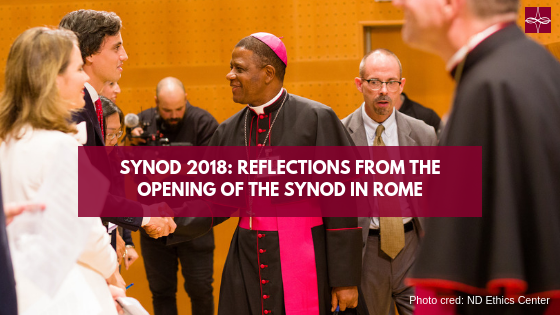


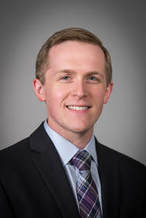


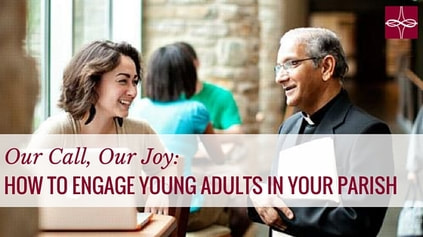
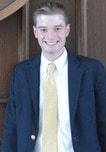
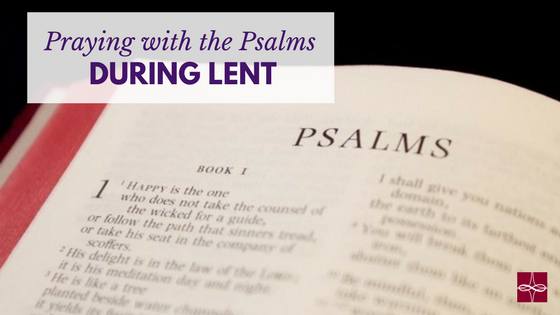

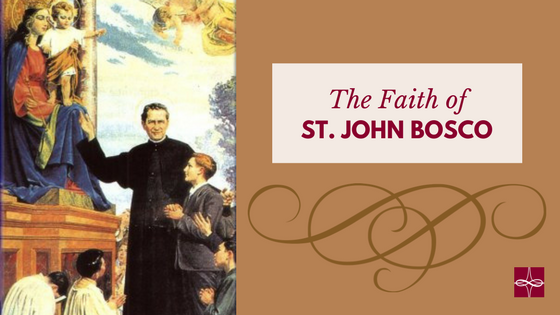

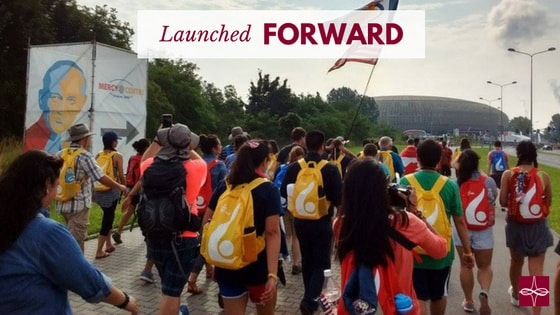
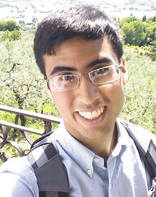


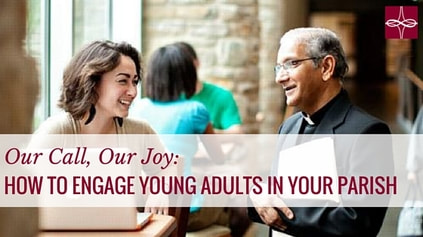



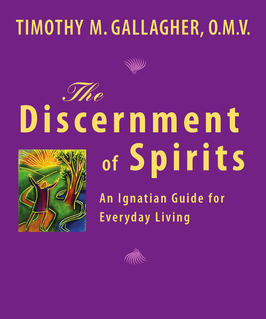
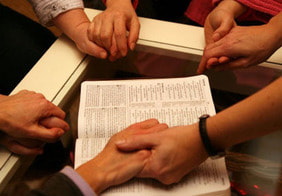
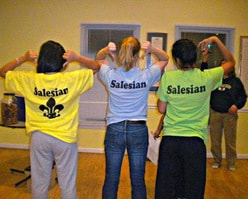
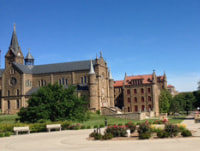
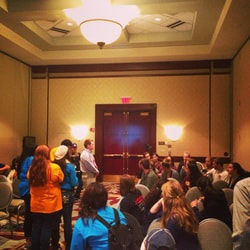
 RSS Feed
RSS Feed